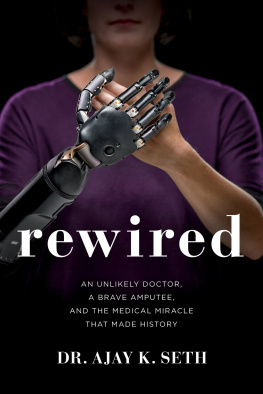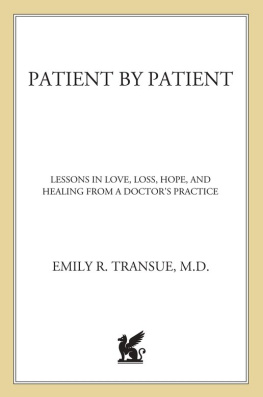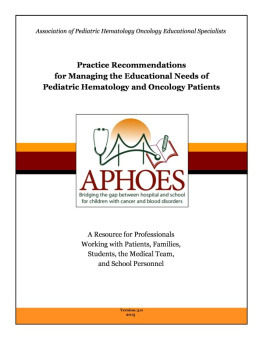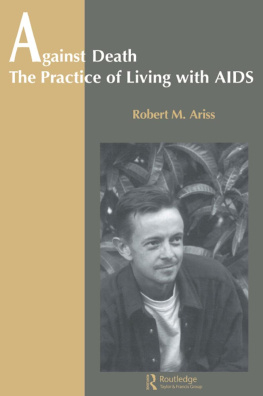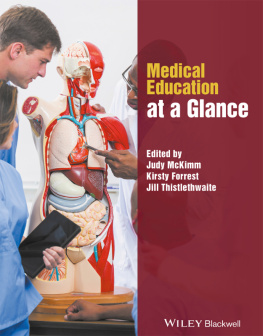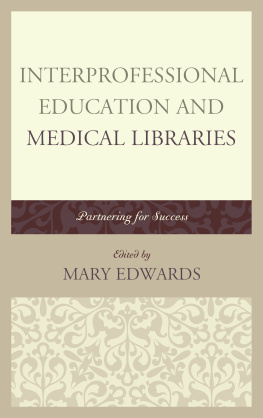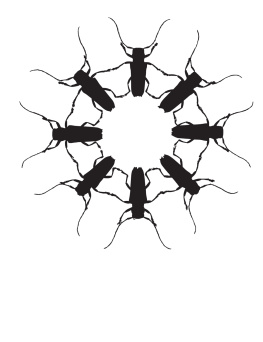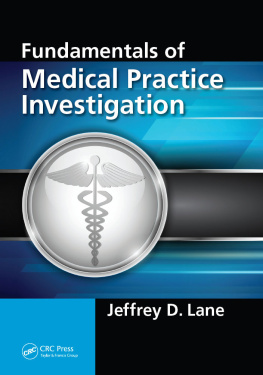Piemonte - Afflicted: how vulnerability can heal medical education and practice
Here you can read online Piemonte - Afflicted: how vulnerability can heal medical education and practice full text of the book (entire story) in english for free. Download pdf and epub, get meaning, cover and reviews about this ebook. City: London;England, year: 2018, publisher: MIT Press, genre: Politics. Description of the work, (preface) as well as reviews are available. Best literature library LitArk.com created for fans of good reading and offers a wide selection of genres:
Romance novel
Science fiction
Adventure
Detective
Science
History
Home and family
Prose
Art
Politics
Computer
Non-fiction
Religion
Business
Children
Humor
Choose a favorite category and find really read worthwhile books. Enjoy immersion in the world of imagination, feel the emotions of the characters or learn something new for yourself, make an fascinating discovery.

Afflicted: how vulnerability can heal medical education and practice: summary, description and annotation
We offer to read an annotation, description, summary or preface (depends on what the author of the book "Afflicted: how vulnerability can heal medical education and practice" wrote himself). If you haven't found the necessary information about the book — write in the comments, we will try to find it.
Piemonte: author's other books
Who wrote Afflicted: how vulnerability can heal medical education and practice? Find out the surname, the name of the author of the book and a list of all author's works by series.
Afflicted: how vulnerability can heal medical education and practice — read online for free the complete book (whole text) full work
Below is the text of the book, divided by pages. System saving the place of the last page read, allows you to conveniently read the book "Afflicted: how vulnerability can heal medical education and practice" online for free, without having to search again every time where you left off. Put a bookmark, and you can go to the page where you finished reading at any time.
Font size:
Interval:
Bookmark:
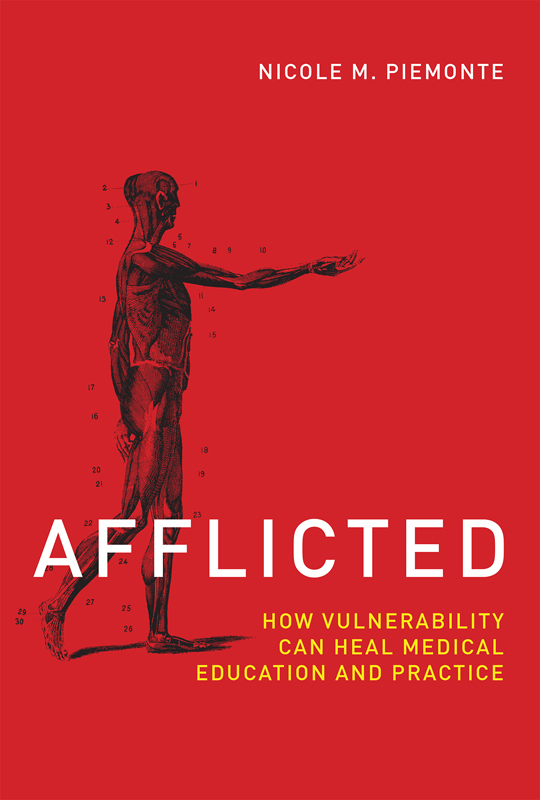
Basic Bioethics
Arthur Caplan, editor
A complete list of the books in the Basic Bioethics series appears at the back of this book.
How Vulnerability Can Heal Medical Education and Practice
Nicole M. Piemonte
The MIT Press
Cambridge, Massachusetts
London, England
2018 Massachusetts Institute of Technology
All rights reserved. No part of this book may be reproduced in any form by any electronic or mechanical means (including photocopying, recording, or information storage and retrieval) without permission in writing from the publisher.
This book was set in Stone Serif by Westchester Publishing Services. Printed and bound in the United States of America.
Library of Congress Cataloging-in-Publication Data
Names: Piemonte, Nicole M., author.
Title: Afflicted : how vulnerability can heal medical education and practice / Nicole M. Piemonte.
Description: Cambridge, MA : The MIT Press, [2017] | Series: Basic bioethics | Includes bibliographical references and index.
Identifiers: LCCN 2017021517 | ISBN 9780262037396 (hardcover : alk. paper)
Subjects: LCSH: MedicinePhilosophy. | Medical educationPhilosophy. | Medical ethics.
Classification: LCC R723 .P476 2017 | DDC 610.1dc23
LC record available at https://lccn.loc.gov/2017021517
For my mother, Joy, who always seemed to embody her name
The ideas presented in this book are ones I have had for a long timeideas that were critically important to me before I started my graduate work in the medical humanities, though at the time they were more nebulous and intuitive and, indeed, not yet coherent. I started my doctoral program not long after caring for my mother, a joyful woman filled with a fierce love who was diagnosed at fifty with advanced ovarian cancer and died a little more than two years later. After living alongside her illness and plunging deep into the disorienting world of hospital rooms, anxious sickbed vigils, and isolating suffering, I emerged with something I never asked for: a vivid, embodied understanding of the triumphs and failings of the complex world of medicine.
Looking back, I know that my mothers doctors cared for her, both as a patient and as a person; they were kind, compassionate, professional, and knowledgeableall of the things we want our doctors to be. But, as she lay dying in a hospital room instead of at home, having been told only twelve hours earlierby a palliative care doctor whom she had never metthat she was dying, I also knew that, somewhere along the way, something had gone wrong. Her doctors, who genuinely cared about her and also about me, were afraid. They were afraid of telling us that she was dying, though they undoubtedly knew she was, having seen the scans that showed the disease had spread throughout her lungs and abdomen and into her brain. They were afraidthat is the only way I can make sense of their offering her a new chemotherapy treatment the day before she died rather than acknowledging that the end was so near.
It would have been easy for me, and at times it was easy, to blame the doctors for not being candid with us, for not simply addressing my mothers inevitable death. Wasnt it their job to break bad news, to diagnose and prognosticate, to tell us what was happening inside her body? And, more than that, werent they, as healers, called to do something more than medically treat her disease? Shouldnt they have acknowledged the reality of her existential suffering, that she was facing the end of her life much earlier than she had ever imagined? Shouldnt they have made sure she was comfortable, that she could say her good-byes to her friends and family and die at home?
It is easy to ask these questions and to become angry that things could have, or should have, been different. But this anger, it seems to me, fails to consider that my mothers doctors were human beings with their own struggles, limitations, and vulnerabilities. If doctors are more than just medical technicians or dispensers of healthcare, if they are, in fact, also human beings, who, like the rest of us, experience sadness and fear and disappointment, then it is understandable that confronting human suffering and mortality might be difficult for them. It is much easier to look at the statistical chances for a patients living another few months and to offer her more treatment than to tell a scared woman and her scared daughter that they need to confront the one reality they simply cant bear to face.
My research over the past six years and my time spent with patients, doctors, residents, and students, both medical and premedical, has revealed to me that, though our anger and frustration toward doctors can sometimes be justified, they can sometimes be misguided, too. Seeing firsthand how doctors are trained has in many ways transformed my anger and frustration into a kind of empathy for those who are shaped by, and even perpetuate, the systems that fail patients and doctors alike. It is easy to criticize doctors for being unempathetic, uncaring, and self-serving, but doing so often covers over the root of the problem: the educational and institutional cultures that so powerfully (trans)form medical students and doctors; that promote reductionistic understandings of care, illness, and suffering; and that virtually ignore the personal developmentthe selfof students who are becoming doctors.
Not long ago, while attempting to make my thoughts about these issues cohere into some kind of written work, I opened an e-mail that was part of a thread I had been following on a large listserv. It was from a doctor who was writing in response to the topic of physicians who behave badly:
This conversation has resonated deeply with me as a physician who has intended well, and who nearly burned out because of the insidious process of physician formation that left me a mess at the threshold of the suffering of other human beings. I wont begin to tell you the sad things I have seen and done, and it has taken me years to find my way out, and back into compassionate care. We have a deep, deep problem in this country with physician formation. Among other things. I waspardon the sentimentloved back into a good medical practice as a form of growing wisdom and care. And believe me, I am still learning.
When I read this doctors candid and poignant message, I knew right then he had captured the very problem I wanted and needed to explore. Despite all the scholarly work focusing on professionalism, empathy erosion, and the need for holistic care, little has been said about how the process of forming future doctors leaves them ill equipped to handle the realities of medicineand how it leaves them a mess at the threshold of human suffering. Surprisingly, even less has been said about why medical training tends to avoid the cultivation of the self and an authentic confrontation with human suffering and the fear and self-doubt that can come with it. And almost nothing has been said about how medical students and doctors might be loved back into compassionate care for themselves and others.
I am well aware that the idea of loving someone back into compassionate care sounds effusive and even silly, especially within a medical culture that tends to valorize objectivity and professional detachment. Yet this word seems right to me. It is somehow too vague, too profound, too imprecise, and too perfect all at once. In this context, the word is strange; it stops us in our tracks; its incongruity forces us to consider the very humanness of medicine. In Arthur Kleinmans classic text
Font size:
Interval:
Bookmark:
Similar books «Afflicted: how vulnerability can heal medical education and practice»
Look at similar books to Afflicted: how vulnerability can heal medical education and practice. We have selected literature similar in name and meaning in the hope of providing readers with more options to find new, interesting, not yet read works.
Discussion, reviews of the book Afflicted: how vulnerability can heal medical education and practice and just readers' own opinions. Leave your comments, write what you think about the work, its meaning or the main characters. Specify what exactly you liked and what you didn't like, and why you think so.

